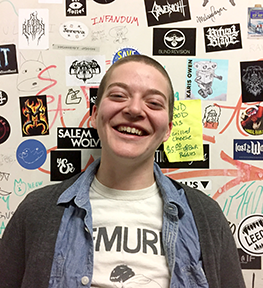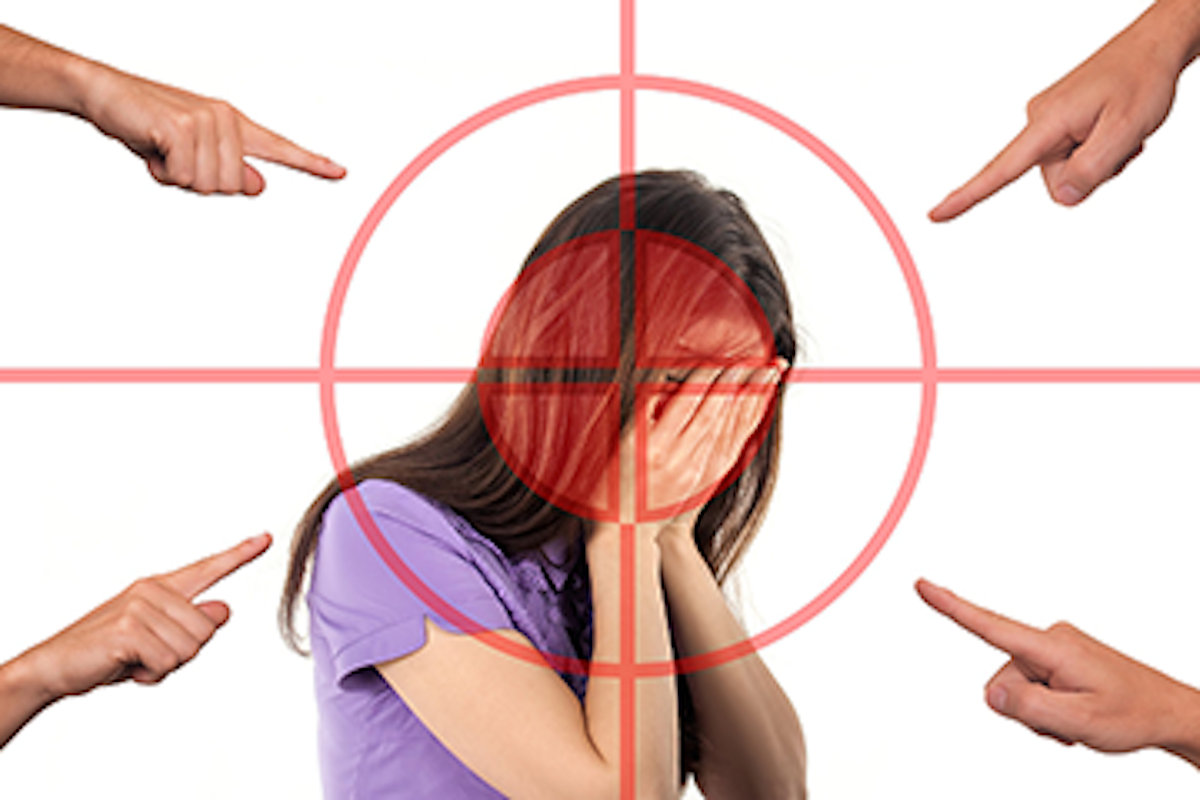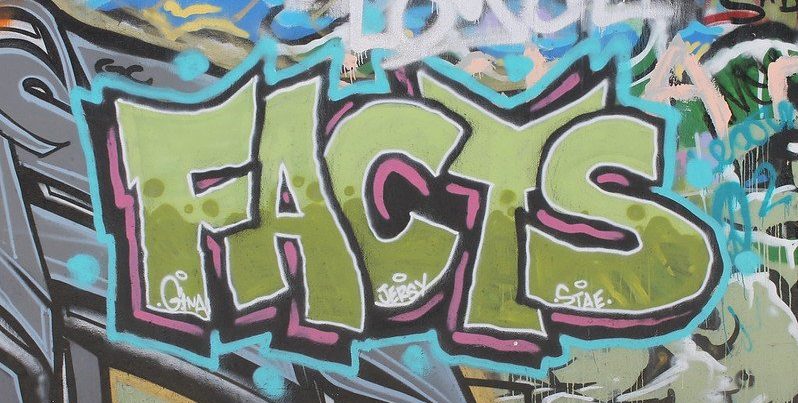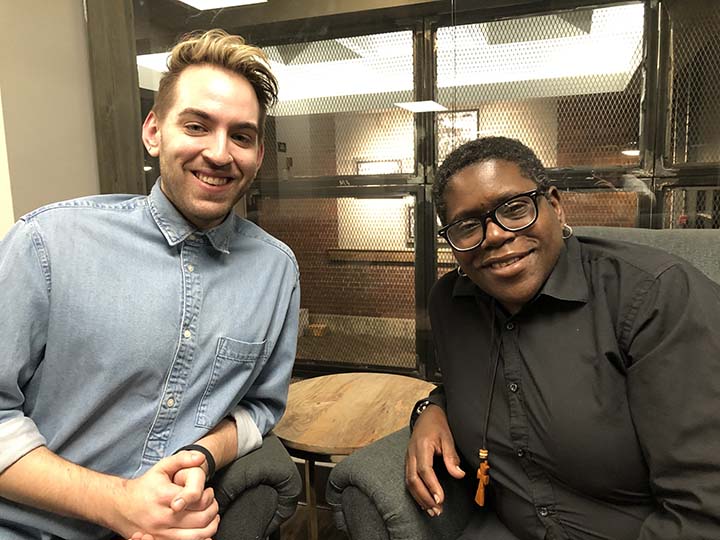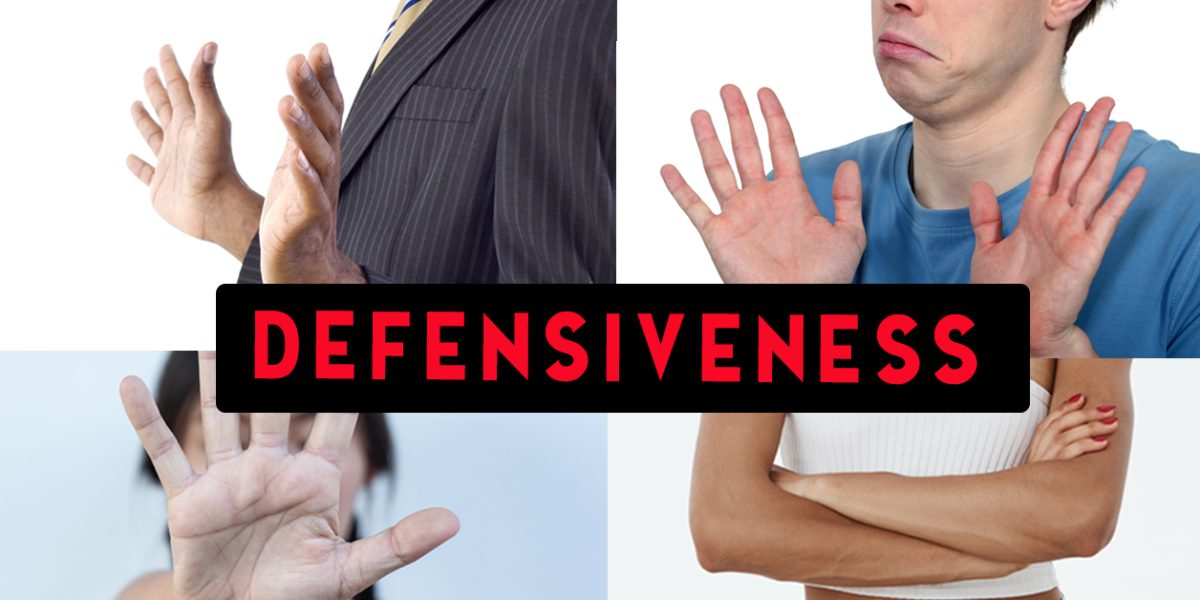Whenever I reflect on the many moments that I felt less than my peers in school, the sinking feeling returns.
The blush begins at the base of my neck. I know the embarrassment all too well.
I’d often wear the baggiest clothes, like a sweatshirt and loose athletic pants, to hide the shape of my body. My mindset was, if anyone were to notice how the sides of my stomach hung over the waistband of my jeans, I’d certainly offend them.
Other aspects of my physical appearance and personality also seemed to draw the bullies. Oh boy, did the students have fun creating new jokes about the large mole on my cheek.
I felt as though the other students let me exist, but only with penance for being different.
I needed someone to help me break this mindset.
My 8th-grade math teacher would often ask me to go the board to solve an equation. This simple math exercise was actually the worst part of my day. I would drag the chalk against the board while the students behind me snickered.
“Fat ass,” someone said one day.
My body froze, and the chalk stopped moving. My face was practically steaming. I would have done anything to fold into myself and disappear. I wanted to rip the skin, the fat, from my body, and plead for perfection.
No one said anything for a few seconds. The words hung in the air, as my back dripped with despair. The teacher stood to my side, behind her desk. After a long wait, she finally broke the silence, executing her version of discipline.
She sternly said the student’s name. Then, she asked me to return to my seat. That was it.
I remember feeling alone in that moment, even with friends and an authority figure in the room.
And I was angry. But not toward the other students. Toward that teacher, and the other teachers, and the counselors, principals, and society as a whole.
Simply calling out the name of the student who shamed me was not enough. I wanted that teacher, and other adults, to tell the other kids and students that I was a human being who deserved respect.
What had I done to warrant this treatment? I actually WAS fat — but that didn’t change my value. I still wanted and needed my existence to be validated. I needed the reassurance of others, that I did not deserve to be mocked.
I wanted that teacher to correct the student who was bullying me. I wanted to hear, from her, that I’m ok just as I am.
The unfair and harsh reality is: bullying is inherently connected to deviating from society’s norm, whatever it might be. And that norm is most comfortable for slim, white, heterosexual, cisgender, males. All the rest of us are bound to suffer bullying at some point.
So this is for all of us. We need to forever remove the idea that coping with bullying builds character. Instead, we need to acknowledge that being bullied is an emotionally depleting experience for children and leaves them feeling “less than.”
Adults, and especially teachers, need to be better advocates for youth, and their actual well-being. They need to help build a generation of kids that feel comfortable in their skin, starting with kids who are kinder to each other.
We need more resources everywhere, for everyone: the children, teenagers, and adults that are bullied, and the support systems in all of these people’s lives. Teachers and parents specifically need literature or media to develop the ability to advocate for the youth in their lives.
We need those who are bullied to know they aren’t alone. More specifically, we need victims of bullying to know that the grown-ups among them understand and will have their backs.
